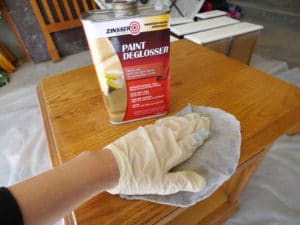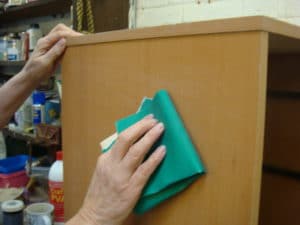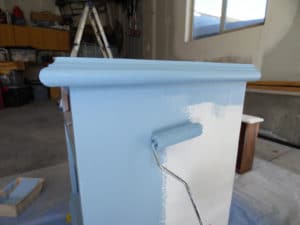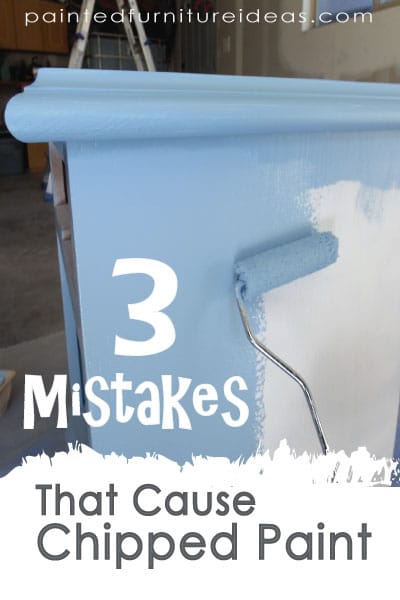Once upon a time I painted a beautiful pink dresser for my daughter. She helped me pick out the color and it was so perfectly princess even I was a little jealous. We moved it into her room, filled it up, and life was good. Less than a week later, the corners of the paint were peeling up, and within a few days, the princess dresser looked more like Cinderella’s shredded dress. If you put the effort to paint furniture, make sure it last by avoiding these mistakes that cause paint to chip.
Reason One: Dirt
The dresser I found for my daughter was from an estate sale, which means it had likely been sitting in a house for quite a long time. It was in good condition, but no doubt it had more than a couple layers of dust. If you don’t clean your older pieces you will have chipped paint. Paper towels leave behind additional dust bunnies, so use a tack cloth. You can use paint deglosser or windex works great too.

Reason Two: Remaining Topcoat
Any furniture that has a thick, glossy topcoat needs to be sanded down before painting over it.
If the furniture looks shiny or glossy, paint will not adhere correctly until it has been sanded down. You don’t have to get down to the bare wood, but it should be at least roughed up a little. A primer will also help with this problem, but sanding is always required to prevent chipped paint.

Reason Three: Thick Paint
I’m completely guilty of this one. I always try to put on thick coats of paint because quite frankly, I’m lazy, and busy, and so I slap on a thick coat and am immediately filled with regret. When you use too much paint it is easy to get bubbles, drips, and other imperfections that can lead to scratches, tears, and peeling.

Usually, I am so excited to finish a piece that as soon as it is dry to the touch, I bring it inside and set it up to see how it looks. More than once, this has backfired on me requiring touch ups later. Even if the top is dry, let the paint cure completely, especially if you live in an area that is hot and humid.
Careful planning can prevent most of these mishaps and leave you with a beautifully finished piece of furniture that will last for years and most people will never know you painted it yourself. Say goodbye to chipped paint!

![]() To learn more about preventing a bad finish read these articles: The 4 Biggest Mistakes People Make When Painting Their Kitchen Table
To learn more about preventing a bad finish read these articles: The 4 Biggest Mistakes People Make When Painting Their Kitchen Table







Can you give me any tips on how to use Polycrylic on furniture without leaving overlap/brush strokes. I used it on letters I had painted and had horrible overlap/brush strokes. I can’t imagine trying to use it on something bigger like a piece of furniture.
I would use a foam roller not a brush. (If you have to use a brush get a high quality brush like Purdy). Work slowly as to not overlap existing strokes, and just pull the roller/brush across the furniture, don’t push on it at all. If it is water based you can thin it by about 10% which will help as well. Sand between each coat, lots of thin coats will look better than one or two thick coats. Good luck Kim!